I am trying to download the buffer of file into 5 threads but it seems like it's getting garbled.
from numpy import arange
import requests
from threading import Thread
import urllib2
url = 'http://pymotw.com/2/urllib/index.html'
sizeInBytes = r = requests.head(url, headers={'Accept-Encoding': 'identity'}).headers['content-length']
splitBy = 5
splits = arange(splitBy + 1) * (float(sizeInBytes)/splitBy)
dataLst = []
def bufferSplit(url, idx, splits):
req = urllib2.Request(url, headers={'Range': 'bytes=%d-%d' % (splits[idx], splits[idx+1])})
print {'bytes=%d-%d' % (splits[idx], splits[idx+1])}
dataLst.append(urllib2.urlopen(req).read())
for idx in range(splitBy):
dlth = Thread(target=bufferSplit, args=(url, idx, splits))
dlth.start()
print dataLst
with open('page.html', 'w') as fh:
fh.write(''.join(dataLst))
Update: So I worked over and got little but progress, however if I download a jpg it seems to be corrupted;
from numpy import arange
import os
import requests
import threading
import urllib2
# url ='http://s1.fans.ge/mp3/201109/08/John_Legend_So_High_Remix(fans_ge).mp3'
url = "http://www.nasa.gov/images/content/607800main_kepler1200_1600-1200.jpg"
# url = 'http://pymotw.com/2/urllib/index.html'
sizeInBytes = requests.head(url, headers={'Accept-Encoding': 'identity'}).headers.get('content-length', None)
splitBy = 5
dataLst = []
class ThreadedFetch(threading.Thread):
""" docstring for ThreadedFetch
"""
def __init__(self, url, fileName, splitBy=5):
super(ThreadedFetch, self).__init__()
self.__url = url
self.__spl = splitBy
self.__dataLst = []
self.__fileName = fileName
def run(self):
if not sizeInBytes:
print "Size cannot be determined."
return
splits = arange(self.__spl + 1) * (float(sizeInBytes)/self.__spl)
for idx in range(self.__spl):
req = urllib2.Request(self.__url, headers={'Range': 'bytes=%d-%d' % (splits[idx], splits[idx+1])})
self.__dataLst.append(urllib2.urlopen(req).read())
def getFileData(self):
return ''.join(self.__dataLst)
fileName = url.split('/')[-1]
dl = ThreadedFetch(url, fileName)
dl.start()
dl.join()
content = dl.getFileData()
if content:
with open(fileName, 'w') as fh:
fh.write(content)
print "Finished Writing file %s" % fileName
Below is how the image after getting downloaded.
